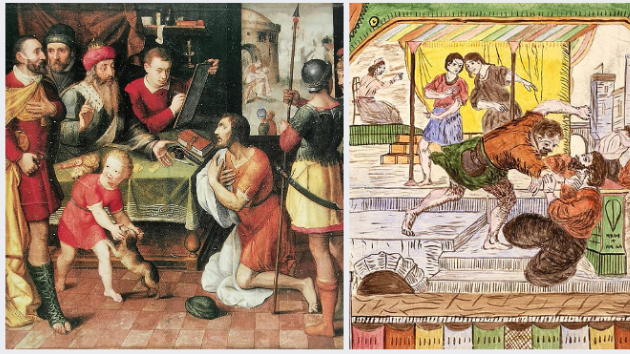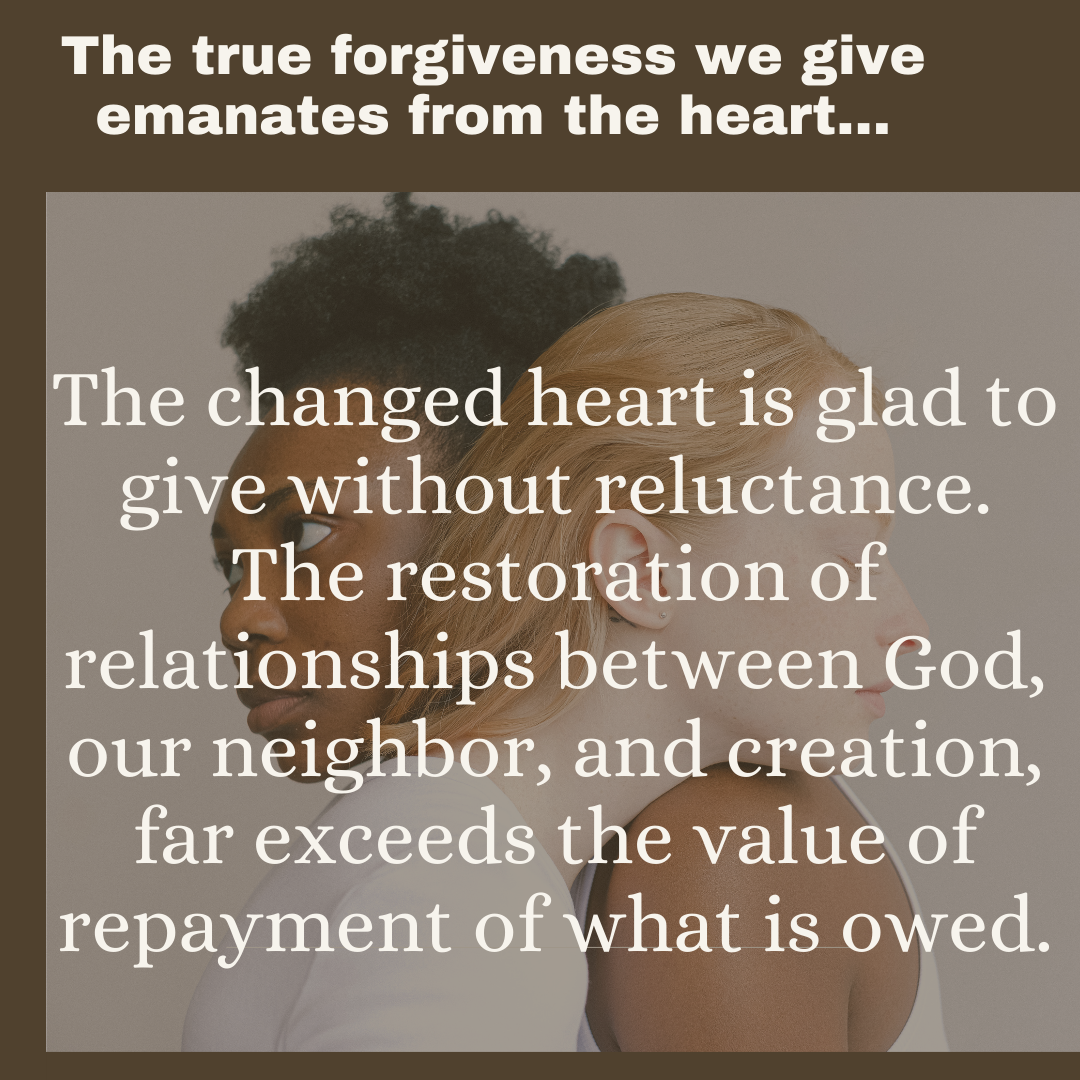God’s Infinite Mercy Is Our Justice
Matthew 18:21-35
Sixteenth Sunday after Pentecost
Analysis by Mark A Marius
21Peter came and said to [Jesus], “Lord, if another member of the church sins against me, how often should I forgive? As many as seven times?” 22Jesus said to him, “Not seven times, but, I tell you, seventy-seven times.
23“For this reason the kingdom of heaven may be compared to a king who wished to settle accounts with his slaves. 24When he began the reckoning, one who owed him ten thousand talents was brought to him; 25and, as he could not pay, his lord ordered him to be sold, together with his wife and children and all his possessions, and payment to be made. 26So the slave fell on his knees before him, saying, ‘Have patience with me, and I will pay you everything.’ 27And out of pity for him, the lord of that slave released him and forgave him the debt. 28But that same slave, as he went out, came upon one of his fellow slaves who owed him a hundred denarii; and seizing him by the throat, he said, ‘Pay what you owe.’ 29Then his fellow slave fell down and pleaded with him, ‘Have patience with me, and I will pay you.’ 30But he refused; then he went and threw him into prison until he would pay the debt. 31When his fellow slaves saw what had happened, they were greatly distressed, and they went and reported to their lord all that had taken place. 32Then his lord summoned him and said to him, ‘You wicked slave! I forgave you all that debt because you pleaded with me. 33Should you not have had mercy on your fellow slave, as I had mercy on you?’ 34And in anger his lord handed him over to be tortured until he would pay his entire debt. 35So my heavenly Father will also do to every one of you, if you do not forgive your brother or sister from your heart.”

(Right) The Unmerciful Servant/Just Judge – From Wikimedia Commons
(Left) Parable of the King and His Servants – Lawrence W. Ladd – From Wikimedia Commons
The cross was not just[-ified] for Jesus. But it was merciful for us. Jesus wasn’t after something that was owed to him, but more concerned about restoring our relationship with God. His intercession for all our injustices is the mercy we get, not the justice we deserve.
Diagnosis: The Head Follows the Rues
Step 1: Initial Diagnosis (External Problem): Head Not Heart
Forgiveness. Do we have to? Let me get this straight in my head. What is the requirement? When someone does me wrong the sting and pain of injustice hurt my heart. The debt owed to me is burdensome. My thoughts of getting what I am owed produces anger within. Seven times is already more than the law requires.
Step 2: Advance Diagnosis (Internal Problem): Restitution Not Restoration
Jesus speaks of mercy, but we want a justice that gives us what we are owed. We don’t view the relationship as important as getting what was taken from us. We fail to trust that mercy will give us what we deserve—that the repaired relationship forgiveness brings is greater than what was taken from us. Isn’t it our right to hold the other accountable?
Step 3: Final Diagnosis (Eternal Problem): Justice Not Mercy
Our seeking justice is a little short sighted. Getting what we are owed is a flawed system since we certainly cannot give to God what is owed to God—our creator and provider. But if that is how we wish to operate, should we expect God to operate differently? When God comes to collect do we want justice or mercy?
Prognosis: The Heart Breaks Open the Rules
Step 4: Initial Prognosis (Eternal Solution): Mercy Is Justice
The cross was not just for Jesus. But it was merciful for us. Jesus wasn’t after something that was owed to him, but more concerned about restoring our relationship with God. His intercession for all our injustices is the mercy we get, not the justice we deserve. Thank God is willing to give us unlimited mercy.
Step 5: Advanced Prognosis (Internal Solution): Restoration Is Restitution
We can trust the mercy of God given to us through Jesus. With contrite hearts we seek forgiveness even though our head tells us we are undeserving. Our relationship with God is continually restored through the grace of the sacraments. Water, Bread, and Wine given freely without strings or expectation of repayment.
Step 6: Final Prognosis (External Solution): The Heart Will Keep You Ahead
The true forgiveness we give emanates from the heart. Our hearts, that God continually tends to, flows with unlimited love and grace. The heart cares less about meeting requirements, and relishes in surpassing expectations. The changed heart is glad to give without reluctance. The restoration of relationships between God, our neighbor, and creation, far exceeds the value of repayment of what is owed.




You must be logged in to post a comment.